9 Dental Care Tips to Improve Your Oral Hygiene Routine
Summary: Good oral hygiene is crucial for preventing dental issues like cavities, gum disease, and bad breath. Following these nine easy dental care tips will help you maintain healthy teeth and gums. Regular brushing, flossing, and dental visits are key to a lasting, bright smile and overall health.
A healthy smile is more than just about looks; it reflects good overall health. Unfortunately, many people neglect oral care until they experience pain or discomfort. Proper oral hygiene prevents cavities, gum disease, and other health issues. With the right routine, you can keep your teeth and gums in excellent condition. In this blog, the best dentists in Gurgaon at Miracles Mediclinic provide insights into what oral hygiene is, why it is important, how it affects your health, and nine easy-to-follow dental care tips.
What is Oral Hygiene?
Oral hygiene refers to the practice of keeping your mouth clean to prevent dental issues like cavities, gum disease, and bad breath. It involves brushing, flossing, using mouthwash, and visiting the dentist for regular checkups. A proper oral hygiene routine ensures that your teeth, gums, and tongue stay healthy.
9 Dental Care Tips for Better Oral Hygiene
Here are some essential steps for oral hygiene:
-
Brush Your Teeth Twice a Day: Brushing your teeth is the foundation of oral hygiene. Make sure to brush your teeth in the morning and before bedtime to remove plaque and bacteria that accumulate throughout the day. Use a fluoride toothpaste and a soft-bristle toothbrush to avoid damaging your gums and enamel. Brushing for at least two minutes using gentle circular motions ensures a thorough cleaning, reaching all surfaces of your teeth.
-
Floss Daily: Flossing is just as essential as brushing. It helps remove food particles and plaque stuck between your teeth that your toothbrush can’t reach. By flossing once a day, you reduce your chances of developing cavities and gum disease. Make it a habit to floss before bedtime to ensure you are cleaning those hard-to-reach spots.
-
Use Mouthwash for Extra Protection: Mouthwash is a powerful addition to your oral hygiene routine. It helps eliminate bacteria, freshen your breath, and strengthen your teeth. Use an alcohol-free mouthwash with fluoride, which not only provides antibacterial protection but also helps prevent cavities. After brushing and flossing, rinse your mouth with mouthwash for 30 seconds to get that extra layer of protection.
-
Clean Your Tongue: Your tongue can trap bacteria and food particles, which can lead to bad breath and other oral health problems. Make it a habit to clean your tongue daily. You can use a tongue scraper or gently use the back of your toothbrush to clean your tongue after brushing. This will help remove bacteria and improve your breath.
-
Eat a Tooth-Friendly Diet: The food you eat directly affects your oral health. Foods high in sugar and acidic beverages can weaken your enamel and increase your risk of cavities. Instead, focus on eating a balanced diet rich in calcium, vitamin D, and phosphorus, which are essential for strong teeth. Incorporate foods like dairy, leafy greens, nuts, and fish to promote healthy teeth and gums.
-
Stay Hydrated: Water is your best friend when it comes to oral hygiene. Drinking water throughout the day helps wash away food particles and bacteria from your mouth. It also helps prevent dry mouth, which can lead to bad breath and tooth decay. Always choose water over sugary drinks or soda to keep your teeth clean and hydrated.
-
Avoid Tobacco and Limit Alcohol: Tobacco use and excessive alcohol consumption can significantly harm your oral health. Smoking increases the risk of gum disease, tooth loss, and oral cancer. Alcohol, on the other hand, can dry out your mouth and promote tooth decay. For a healthier mouth, quit smoking and limit your alcohol intake.
-
Visit Your Dentist Regularly: Regular dental checkups are key to maintaining good oral health. Dentists can spot problems early, such as cavities or gum disease, before they become more serious. Routine cleanings can help remove plaque buildup that your toothbrush and floss can’t handle. Aim to schedule a dental visit every six months for a professional evaluation and cleaning.
-
Replace Your Toothbrush Regularly: A worn-out toothbrush can do more harm than good. When the bristles become frayed, your toothbrush won’t be as effective at cleaning your teeth. Replace your toothbrush every three to four months, or sooner if the bristles start to show signs of wear. Also, if you have been sick, it is a good idea to change your toothbrush to avoid reinfecting yourself.
Additional Dental Hygiene Tips to Keep Your Smile Bright:
-
Use the Right Brushing Technique: When brushing, use gentle, circular motions rather than aggressive back-and-forth strokes. This helps prevent damage to the enamel and gums.
-
Consider an Electric Toothbrush: If you have difficulty brushing for the recommended two minutes or reaching certain areas, an electric toothbrush can be a helpful tool for ensuring thorough cleaning.
-
Chew Sugar-Free Gum: If you are on the go and can’t brush right away, chewing sugar-free gum can help stimulate saliva production, which naturally helps wash away food particles and neutralize acids in your mouth.
-
Use a Fluoride Toothpaste: Fluoride strengthens your teeth and helps prevent cavities. Choose a toothpaste that contains fluoride for maximum protection against decay.
By incorporating these simple yet essential oral health tips into your daily routine, you can enjoy better oral hygiene and a healthier smile. Don’t forget that a little effort goes a long way in preventing costly and painful dental issues down the road.
Can Poor Oral Hygiene Cause Acid Reflux?
This is a common question that comes to mind when discussing oral health. Poor oral hygiene doesn’t directly cause acid reflux, but it can make the condition worse. Acid reflux occurs when stomach acid flows back into the esophagus, leading to heartburn and a sour taste in the mouth. If oral care is neglected, the acid can erode tooth enamel, making teeth sensitive and more prone to decay. People with acid reflux should maintain good oral hygiene to protect their teeth from acid damage and reduce the risk of further complications.
Why is Oral Hygiene Important?
Many people think oral hygiene is only about having white teeth and fresh breath, but it plays a bigger role in your overall well-being. Poor oral hygiene can lead to:
-
Gum Disease: Plaque buildup can cause swollen, bleeding gums, leading to serious infections.
-
Tooth Decay: Bacteria in your mouth feed on leftover food, leading to cavities and tooth loss.
-
Heart Disease: Studies suggest that gum infections may increase the risk of heart disease and stroke.
-
Diabetes Complications: Neglecting oral health can make it more difficult to manage blood sugar levels.
-
Respiratory Issues: Bacteria from your mouth can travel to your lungs, causing infections.
Keeping your mouth clean is not just about avoiding cavities. It is about protecting your overall health.
Conclusion:
Maintaining good oral hygiene is key to ensuring overall health. By following these nine dental care tips, you can prevent cavities, gum disease, and other serious health issues. A little effort in your daily routine can save you from painful dental treatments and expensive procedures in the future.
Take care of your teeth today, and your smile will thank you for years to come! If you need professional dental care, consult a trusted dentist near you to keep your oral health in check.

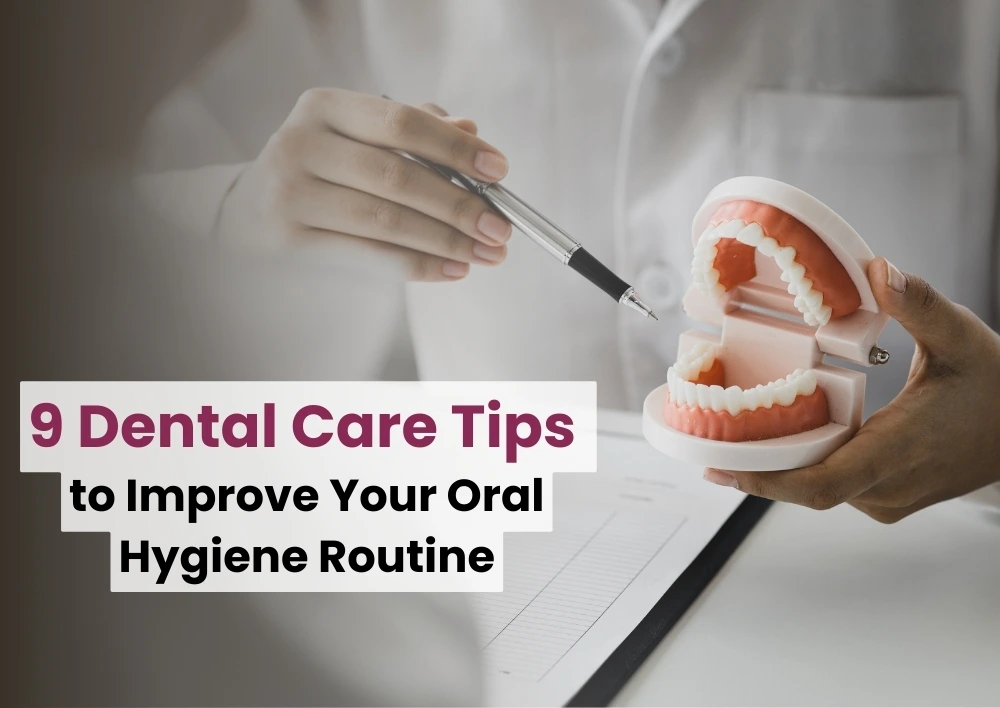


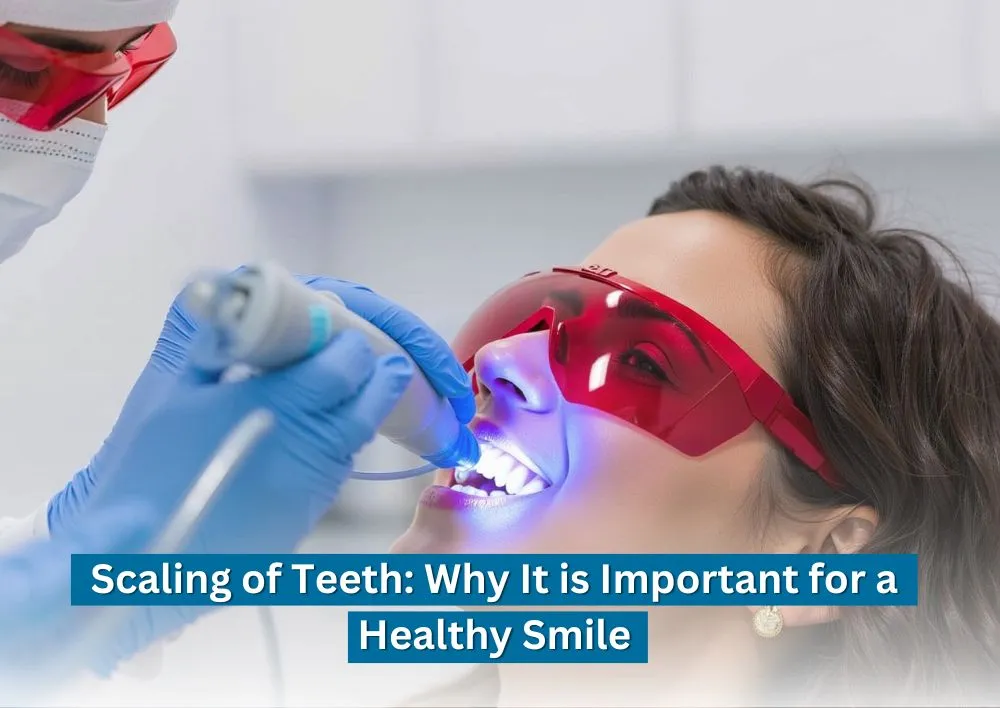
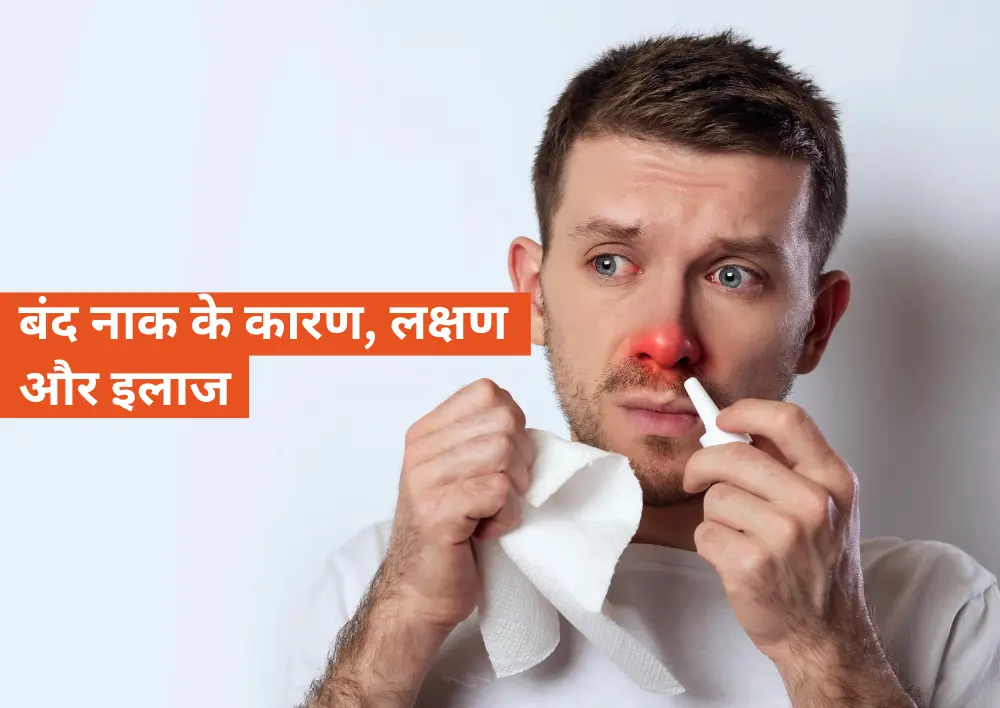
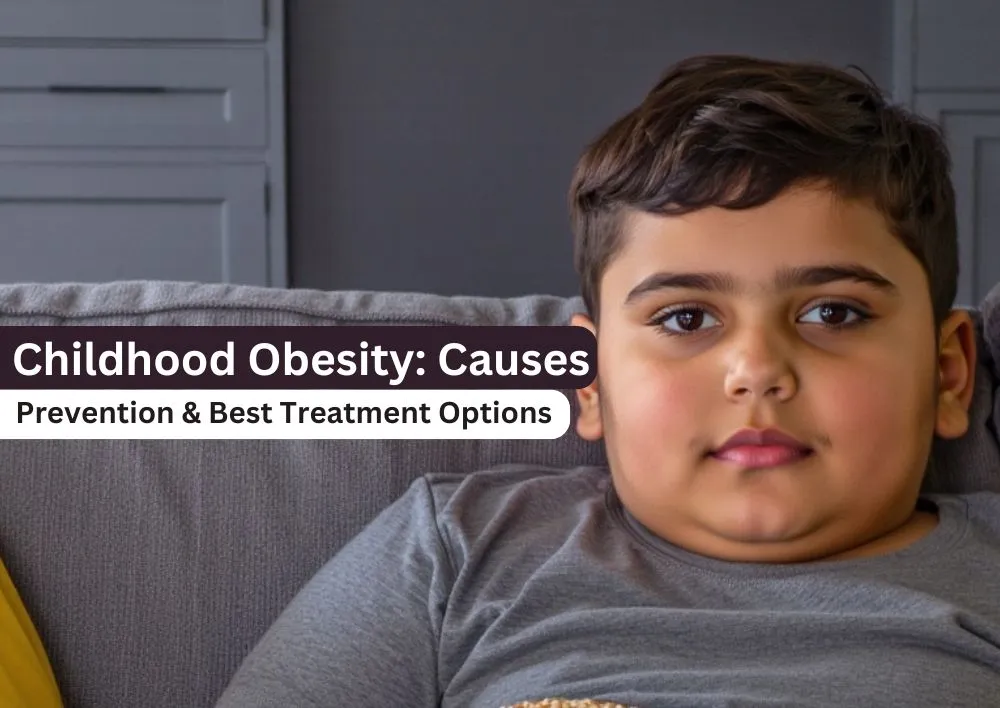
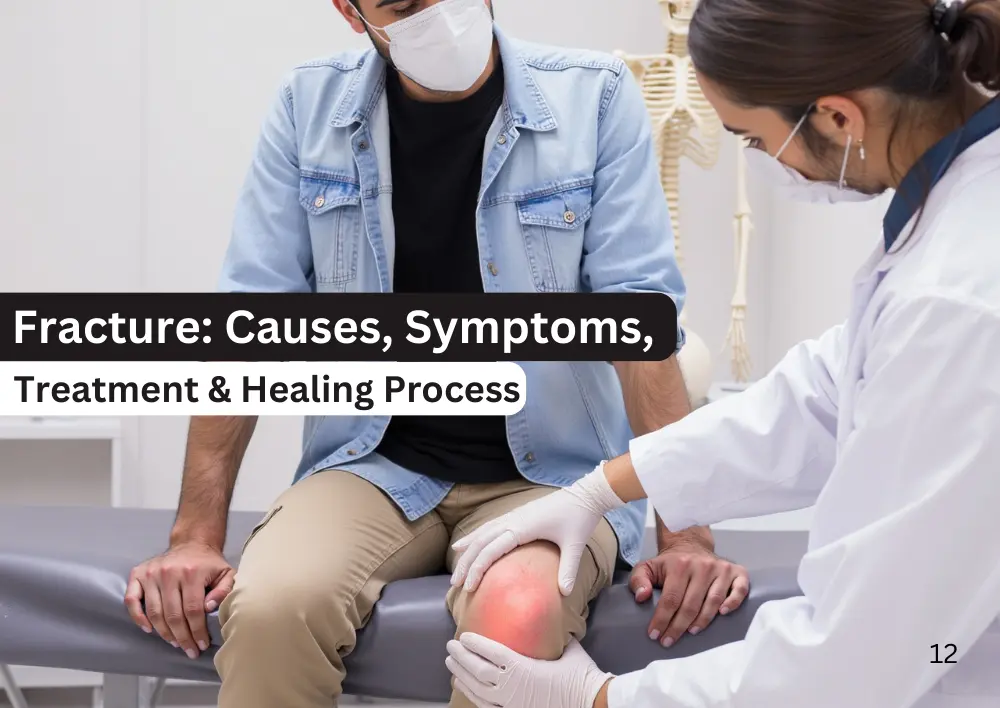





Was the information useful?
0 0